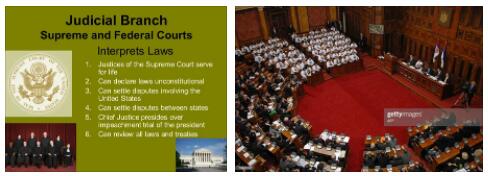The Milošević legacy
The political system in Serbia has remained (partly) determined by the legacy of the Milosevic era since the regime change in 2000. This was determined by the authoritarian transformation of the socialist regime with the simultaneous formal introduction of party pluralism, competitive elections, a (limited) media pluralism and the separation of powers. This peculiar interaction under the conditions of a martial state of emergency has damaged parliamentarism and the political and legal culture. The judiciary became politicized and, like other government sectors, systematically corrupted. The security services became politicized and criminalized, the police / state security and the criminal underground were interlinked, and organized crime. A close, partly informal interweaving of state, party and economy emerged, which also included the private sector. Social elites, like society as a whole, have gone through a process of profound corruption. Finally, while the social decline was justified by the struggle for the national borders of the Serbian people, there was no definition of the understanding of the state, the borders of Serbia, Serbia left the Milošević era with a completely unclear understanding of the state.
According to ehealthfacts, the development of the political system in Serbia was largely determined in the decade after the regime change by the conflict within the former opposition alliance DOS over the reform-political break with the Milosevic legacy. The opposition between the proponents of an extensive elimination of this legacy and the takeover and adherence to certain institutional inheritances and the nationalist ideological legacy turned out to be a conflict between DS and DSS, initially as a conflict between the party leaders Koštunica (DSS) and Đinđic (DS), and after the murder of Premier Đinđic in 2003 with his successors. For a long time the beneficiaries were the extremely nationalist parties, especially the SRS, which was able to stabilize again quickly in the political turmoil of the post-regime change and rose to become the strongest political force. This development shaped the instability of the political system, and shapes it to this day and led to the democratic transformation process did not develop linearly after 2000.
Party system
The governing coalition, in office since July 2012, consists of the Serbian Progressive Party and the Socialist Party of Serbia. The coalition also includes a large number of smaller and micro-parties who entered parliament on the election lists of the Progress Party and the Socialists, as well as representatives of minorities in Serbia.
Since the last parliamentary elections in June 2020, in addition to the governing parties SNS and SPS, the small parties on their electoral lists as well as the representatives of the minorities, only SPAS have belonged to the parliamentary parties. All other parties either boycotted the ballot or failed to meet the 3 percent threshold.
The party system was characterized over long periods by the internal ideological and practical-political conflicts between the parties of the soon-to-be-collapsed former opposition alliance DOS and the threat of an extreme-nationalist majority coalition between the DSS and SRS, which came about in 2004 after the murder of Đinđić. After 2008 and the shrinking of the SRS, the party system was shaped by three large-larger parties, the DS, the newly formed SNS and the LDP – as well as the socialist party. With the loss of the majority capacity of the right bloc, the ideological-programmatic lines of conflict between these 3-4 parties are diffuse. All are useful for the EU integration process. On the other hand, with a few exceptions, the smaller (r) parties are oriented towards power participation and the associated access to resources. This also applies in particular to the parties of the national minorities, whose political interests are naturally oriented towards participation in power due to their minority position.
With the new election in March 2014, the triumphant advance of the SNS, which had started in the parliamentary and presidential elections in 2012, reached its preliminary climax. In the parliament, the government coalition led by it was only faced with a demoralized opposition, which had gained a little more than 10 percent of the vote and which symbolized the decline and collapse of the former ruling party DS.
With the result of the parliamentary elections again brought forward in April 2016, the democratic opposition camp has been strengthened and the ultra-nationalist, EU-hostile opposition has returned to parliament.
At the beginning of September 2018, several opposition parties founded a joint bloc under the name Alliance for Serbia (Savez za Srbiju, SZS). They include the DS and small parties founded by former high officials of the DS-led government from before 2012, such as the party of former Foreign Minister Vuk Jeremić and the party of former high DS official Borislav Stefanović. The leading role is played by former DS chairman Dragan Đilas. The alliance’s program remains vague. In addition to the goal of replacing the Vučić regime by democratic means, the coalition takes a nationalist position on the Kosovo issue. Intra-party criticism of the DS’s participation in the alliance has primarily provoked the participation of the (ultra) nationalist parties DSS and Dveri.
After the election boycott of the majority of the opposition in the June 2020 elections, which was largely politically unsuccessful, the future of the Serbian party system is currently open, ie the pluralistic party system that emerged in the 1990’s is in serious danger.
